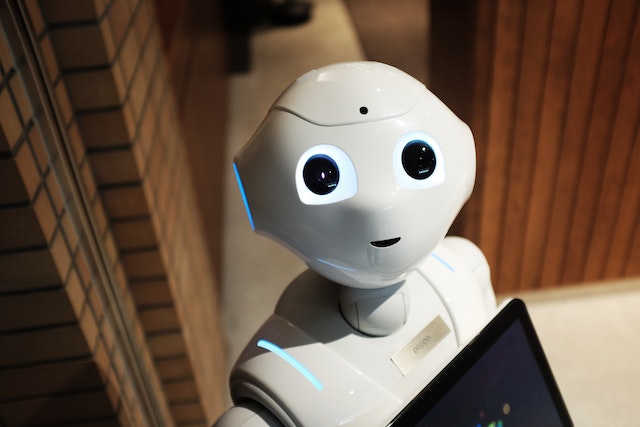
AI Marketing vs. Marketing: Which is Better
AI Marketing vs. Marketing: Which is Better
In the business world today, artificial intelligence (AI) is quickly becoming a popular tool for marketing and sales departments.
AI marketing is an automated approach to reaching customers, while traditional marketing is more manual.
As the world of marketing evolves, it's important to understand the advantages and disadvantages of both AI marketing and traditional marketing to determine which will ultimately be more beneficial for your business.
1. AI Marketing vs Marketers
AI marketing is quickly becoming the norm in today's digital-driven world. As AI technology continues to evolve, marketers need to understand how it can help them better reach their target audience and create more engaging campaigns while staying competitive.
AI marketing is gaining traction as an effective tool for optimising marketing efforts.
It can automate tedious tasks like segmenting audiences, tracking customer behaviour, and delivering targeted content to maximise efficiency and effectiveness.
AI also offers predictive analytics capabilities that enable companies to make decisions based on real-time data insights rather than guesswork or intuition. This allows businesses to adjust their strategies according to changing market conditions which could prove invaluable when trying to stay ahead of the competition.
Despite the many benefits of AI marketing, traditional marketers still have a crucial role in any successful campaign strategy.
2. AI Advantages: Automation, non-biased
In today's digital world, AI offers a range of advantages over traditional marketing methods. Automation and non-bias are two of the most prominent features that Artificial Intelligence (AI) offers marketers.
The automation feature of AI enables marketers to increase their efficiency by automating tasks such as data entry and analysis. With automation, marketers can spend more time on creative strategies for better customer engagement and other complex tasks that require human creativity.
The lack of bias in AI also allows it to be used in situations where human emotions can distort judgement or cause prejudice. This makes it possible for organisations to make decisions based solely on data rather than emotional responses or ingrained opinions about certain topics or groups of people.
3. AI Disadvantages: Expense, Limitations
AI marketing has become increasingly popular as a tool for marketers to target and engage with customers. However, some disadvantages to utilising AI exist that companies should consider before switching from traditional marketing tactics.
The first disadvantage is cost. AI technology can be expensive for businesses, especially those just starting.
Marketers may have to invest in software, hardware and other resources depending on the type of AI they want to use.
Smaller businesses may struggle to find the budget necessary for implementing an AI system, making traditional methods more affordable in comparison.
The second disadvantage of using AI is its limitations. While it is becoming better at understanding human language and behaviours, it still has drawbacks compared to humans, who possess the natural intuition and creativity skills needed for successful marketing campaigns.
4. Human Marketers: Intuition, Personalisation
The emergence of AI technology has disrupted the marketing industry, making traditional strategies seem outdated and inefficient.
Companies have begun relying on AI-driven models to optimise their customer experience and maximise campaign ROI. However, human marketers should not be replaced by algorithms entirely; instead, they must use their intuition and personalisation skills to distinguish themselves from the competition.
AI technologies can measure customer behaviour more accurately than humans can and generate insights that are impossible for marketers to identify manually. Yet, despite its numerous advantages, AI lacks the creativity required to produce innovative ideas that capture customers' attention in a crowded market.
Marketers must rely on their instincts when creating new marketing campaigns and on data retrieved from AI technologies.
5. Future of AI Marketing
The future of AI marketing is an exciting prospect for marketers. Artificial intelligence (AI) technology in the marketing arena is rapidly growing and has already significantly impacted businesses. By leveraging AI, marketers can increase their efficiency and reach more customers more accurately than ever.
Traditional marketing methods such as print advertising, radio spots and direct mail campaigns are becoming obsolete in favour of more data-driven approaches that can be executed with speed and precision due to the advances in AI technology.
Marketers can use AI-powered tools to gain insights into customer behaviour, automate processes such as ad placement, monitor conversations across multiple channels simultaneously, personalise content for individual customers and make better decisions when targeting specific demographics or market segments.
Overall, the future of AI marketing looks very promising for modern-day marketers.
Final Thoughts
It is clear that AI marketing and traditional marketing bring their unique skills to the table, and any business should consider using their services to maximise success.
AI can help automate tasks and provide valuable insights for marketing campaigns. On the other hand, marketers are better equipped to create more creative strategies that engage with customers personally. Ultimately, both play a role in helping businesses reach their goals, so it's important to find the right balance between them.
Contact EWM for the latest web design and development insights.